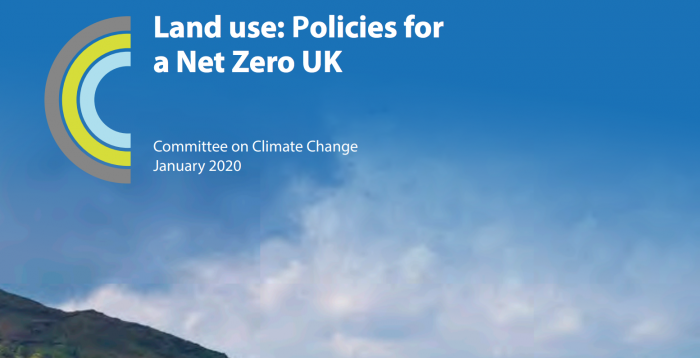A committee looking at how at the UK could meet its 2050 net zero climate change target has recommended a cut in consumption of beef, lamb and dairy products.
But, despite some of the headlines it has generated, the Committee on Climate Change’s (CCC) report focusing specifically on land use and climate has some encouraging conclusions and recommendations for the UK farming sector.
The headline recommendation calls for a reduction in the consumption of the most carbon-intensive foods, ie beef, lamb and dairy, by at least 20% per person, alongside a reduction in food waste by the same amount. The report says this would save 7 MtCO2e of on-farm emissions by 2050.
“These measures imply a shift towards current healthy eating guidelines and can drive sufficient release of land to support the necessary changes in tree planting and bioenergy crops. Alongside expected population growth, they imply around a 10% reduction in cattle and sheep numbers by 2050 compared with 2017 levels. This compares with a reduction of around 20% in the past two decades,” the report says.
As far as pig production, the report notes that meat from non-ruminant sources, including pigs and poultry, are generally more greenhouse-gas (GHG) intensive than plant-based proteins, but less so than most methods of ruminant meat production, particularly beef from dedicated beef herds.
The report also stresses that the ingredients that go into animal feed must also be taken into account when analysing food’s contribution to climate change.
Other recommendations and conclusions include:
- Low-carbon farming practices such as controlled release fertilisers, improving livestock health and slurry acidification can reduce greenhouse gas (GHG) emissions from soils, livestock and manure management by 10 MtCO2e by 2050.
- Extend existing regulation to reduce on-farm emissions (eg Nitrogen Vulnerable Zones) and use new legislation to regulate additional sources of emissions not currently regulated.
- Public funding should be used to incentivise the take-up of low-carbon farming practices, eg precision farming where they go beyond requirements of new regulation and where they imply costs to farmers.
- Delivering emissions reduction should not be at the expense of increasing food imports that risk ‘carbon leakage’. UK trade policy must protect risks of carbon leakage from trade in agricultural products and avoid undermining the required changes in UK land management.
- Increasing UK forestry cover from 13% to at least 17% by 2050 by planting around 30,000 hectares or more of broadleaf and conifer woodland each year.
- Expanding the growing of energy crops by around 23,000 hectares each year.
NFU president Minette Batters also pointed out that the report acknowledged that ‘British farming produces some of the most sustainable food in the world, highlighting that emissions from UK beef is half that of the global average’.
“The report also emphasises that we can’t risk importing food with a higher carbon footprint than food which has been produced in the UK,” she said. “A comprehensive approach across the whole UK economy is needed, and when it comes to farming we need to focus on the whole agricultural system.”
CLA president Mark Bridgeman CLA said: “Overall, we welcome the findings in this report. We are particularly pleased to see that, following the last report, the Committee have significantly lowered their calls for a reduction of cattle and sheep numbers from 46% to 10%.
“The livestock sector has a big role to play in tackling climate change, but it is important this role is proportionate to its actual impact on global temperatures.”




